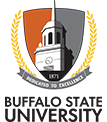During their senior year, social work majors will complete a year-long, supervised field placement, which allows students to apply classroom concepts in a real-world environment, while also helping students build a strong resume and professional network as they near graduation.
Field education is an intense agency-based experience. It places considerable responsibility on social work students to perform in a professional capacity under supervision. Students must possess personal attributes that will enable them to work in a mature, responsible, and constructive manner with agency staff and clients.
Purpose of Field Practicum
The practicum experience is viewed as the culmination of the professional education of the BSW. That is, considerable effort has been made to integrate the practicum with the total curriculum rather than perceiving the field experience as a component separate from the didactic courses. In the design of the practicum, major emphasis has been given to initiating the student into the role of beginning- level generalist practitioner while advancing their professional training.
1. To provide the student with the opportunity to integrate classroom learning and field experiences through the use of applied practice skills to micro, mezzo, and macro levels of practice.
2. To develop the student's ability to operationalize the theoretical knowledge base of the generalist approach to practice in order to prevent, alleviate, or resolve problems in social functioning.
3. To assist the student in the appropriate application of basic generalist practice skills in helping relationships.
4. To develop the student's competency in actualizing a generalist intervention model with an ecological-systems orientation in regard to the interaction of a particular client or client group in a given environment.
5. To assist the student in making the transition from the role of student to the role of a beginning-¬level generalist social worker through the use of block placement and maintenance of an appropriate supportive relationship with the social work faculty.
6. To provide the student with the type of educational experience that is best suited to their individualized needs for personal and professional development through the utilization of a variety of agencies and practice settings.
7. To assist the student in actualizing social work values and ethical principles in practice situations, particularly those helping relationships that involve the specialized needs and/or sensitivity of gender-related, racial, sexual orientation, ethnic, cross-cultural, and/or minority issues, and to enhance the student's ability to resolve situational value conflicts.
8. To identify and maximize individualized student strengths, and to recognize and address student needs and limitations. To assist the student in professional development through the interaction of the student and experienced professional social workers.
9. To assist the student in developing their role as a beginning-level professional social worker by achieving an appropriate balance between self-initiative and the utilization of supervision and consultation.
10.To effect further growth in the student's self-awareness through the evaluation of their own progress and limitations, and to enhance a commitment to continued personal and professional development throughout the individual's professional career.

